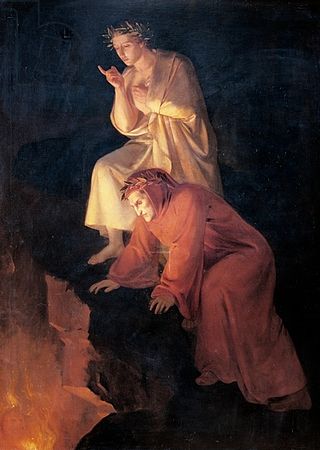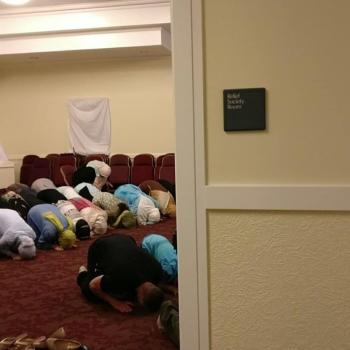
My manuscript continues forward on its leisurely pace:
And it was a rich body of texts that was transmitted. Besides al-Farabi, there was the great Ibn Sina (d. 1037), who became famous in the West under the name “Avicenna,” a Latin distortion of a Hebrew corruption of his original Arabic name. There was also Ibn Rushd, who, through a process similar to that of Avicenna, became Averroes in the West.[1] He was the author of the most famous commentaries on Aristotle to come out of the Middle Ages. It is an impressive tribute to these men that Dante Alighieri (d. 1321), in his brilliant Divine Comedy, placed them in the highest circle of hell. (That was the best that a devout medieval Catholic like Dante could do for non-Christians, given the religious beliefs of his day.) According to that long and famous poem, while Dante is being given a tour of hell in Canto IV of the Inferno, Virgil, the classical Roman poet who was his guide, points out many of the more famous inhabitants. In the first circle, the mildest place in the infernal realm, were many of the great heroes of the past, whose major sin was that they had not been able to receive Christianity. Among these unfortunates, obviously deeply admired by Dante, were such heroic figures of classical history and literature as Hector, Aeneas, and Caesar. But he also included among them philosophers, such as Socrates, Plato, Cicero, Seneca, and “the master of the men who know,” Aristotle. Great pagan scientists, like “Euclid the geometer,” Ptolemy, Hippocrates, and Galen, make their appearance. But there too, in the best part of Dante’s Inferno, despite all the enmity that divided their civilization from his, were Avicenna and “Averroes, of the Great Commentary.” These illustrious individuals were in hell only because they lacked the ordinance of baptism. (It is one of the greatest features of the true gospel that such injustice is banished by the ordinances of the temple.) Virgil, Dante’s guide through hell, explained the situation to him.
The kindly master said: “Do you not ask
who are these spirits whom you see before you? I’d have you know, before you go ahead,
they did not sin; and yet, though they have merits, that’s not enough, because they lacked baptism, the portal of the faith…
and of such spirits I myself am one.
For these defects, and for no other evil,
we now are lost and punished just with this: we have no hope and yet we live in longing.”[2]
Thomas Aquinas (d. 1274), the “Angelic Doctor,” was, until perhaps the last few years, the official theologian of the Roman Catholic Church. He was influenced by the Arab philosophers, especially by Averroes and Avicenna, and placed the latter on a par with Plato. They attracted even the attention of kings: In 1473, King Louis XII of France decreed that Aristotle had to be taught with the commentaries of Averroes. As late as the sixteenth century, the Arab philosophers were required reading (in Latin translation) in the great European universities of Bologna, Padua, Paris, and Oxford.
[1] Usually pronounced “A-VER-o-eez.”
[2] Dante, Inferno, Canto IV, lines 31-42, in the translation of Allen Mandelbaum.












